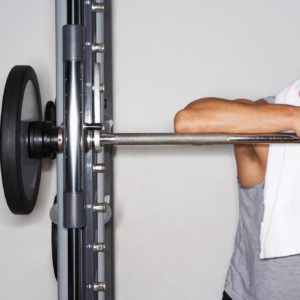Metabolism and Stubborn Fat-loss
Are you experiencing stubborn fat-loss? Maybe it’s time you take a look at your metabolism.
What Is Metabolism?
Metabolism is the sum total, expressed in calories, of all your bodily processes needed to sustain life. It can be low, moderate or high depending on many influencing factors such as aging and physical activity. When it comes to stubborn fat-loss, it is important that you get your Resting Metabolic Rate (RMR) measured.
What is Resting Metabolic Rate?
Resting metabolic rate (RMR) represents the calories the body burns to maintain vital body functions (heart rate, brain function, breathing) at rest. In simple terms, it is the number of calories a person would burn if they were awake, but at rest all day. RMR can represent up to 75% of a person’s total metabolism, if they are inactive or lead a sedentary lifestyle.
Why is it necessary to measure your RMR?
Since RMR accounts for up to 75% of the total calories we need each day, it’s a critical piece of information to appropriately establish daily calorie needs, whether we’re trying to lose or maintain weight. Most healthcare and fitness professionals recognize that stubborn fat-loss could be related to a slow metabolism. In some cases, the reason people are experiencing stubborn fat-loss is due to years of calorie restrictive dieting.
How does Long-term Dieting affect your RMR?
Research has shown that severe decreases in daily caloric intake, less than 600 kilocalories/day, can cause the RMR to slow an average of 10%-20% over six weeks. Once off this “calorie restricted” diet, the RMR remains slow for several more weeks. This slower metabolism is largely due to the loss of lean muscle tissue that often accompanies such calories restrictive diets. Should people repeat this pattern of dieting over many years, they can experience a stubbornly slow RMR. If this sounds like you, then you need to find out what is your RMR.
How do you Determine your RMR?
Traditionally, healthcare professionals and personal trainers have relied on formula estimates of RMR. Because metabolism is different among individuals, estimating can lead to errors, and inaccurate calorie budgets. As a result of these estimates, individuals can be over-eating, and not be successful in reaching their personal goals. The most accurate assessment of caloric needs is by measuring oxygen consumption and determining your individual RMR. The CardioCoach® device by Korr Medical provides accurate information vital for determining a personalized calorie budget, based on your RMR, necessary to achieve and maintain proper weight and nutrition. Additionally, the CardioCoach plays a significant role in providing your daily caloric needs to improve individual care through nutrition assessment. Infofit elite personal trainers use the CardioCoach to help their clients assess and improve their RMR. The cost for an RMR test is approximately $90-$100. The test is quite simple; you sit and breathe into a mouthpiece for 12 minutes – that’s it!
Metabolism and Stubborn Fat-loss
RMR is influenced by a number of factors, such as: body mass, body composition (the amount of fat and muscle), age, gender and hormones. Muscle burns more calories than fat; a person with a higher percentage of muscle will have a higher RMR. In an example from a recent weight management study, subject 1 is a woman who weighs 158 pounds, a body fat percentage of 33%, and a measured RMR of 1571 calories per day. Subject 2 is a woman who also weighs 158 pounds, but has a body fat percentage of 48% and a measured RMR of 1252 calories per day. At the same weight, similar height, and same age, these women have very different RMR values due to differences in body composition. RMR declines naturally in adults at a rate of about 2% per decade, however, this decrease is primarily a result of muscle loss and can be minimized with resistance training.
Men normally have a higher metabolism than women, partly because they tend to have a higher percentage of muscle compared to women. Certain hormones can also increase or decrease metabolism. Knowing your RMR can steer healthcare professionals and personal trainers in the right direction by helping them determine whether your stubborn fat-loss is a matter of a slow RMR or perhaps some other reason mentioned above.
How do I Speed up a Slow RMR?
The most profound method for speeding up your RMR is to perform physical activity, specifically resistance training exercises (RT). The RT exercises increase your muscle mass, thereby increasing your RMR. You may also want to perform an exercise metabolism test known as a SubMaxVO2 test performed by Infofit elite personal trainers. This test measures how many calories you burn during exercise and can be used to refine your exercise program so that you are not over- or under doing it.
If you are experiencing stubborn fat-loss, it could be your metabolism. If so, get tested and with the help of a healthcare professional or elite personal trainer breakthrough this barrier to your weight loss success.
Andre Noel Potvin, Msc, BCRPA-TFL, ACE, President Infofit
-
 Resting Metabolic Rate$99.75
Resting Metabolic Rate$99.75 -
 ACE Weight Management Specialist$597.45
ACE Weight Management Specialist$597.45

